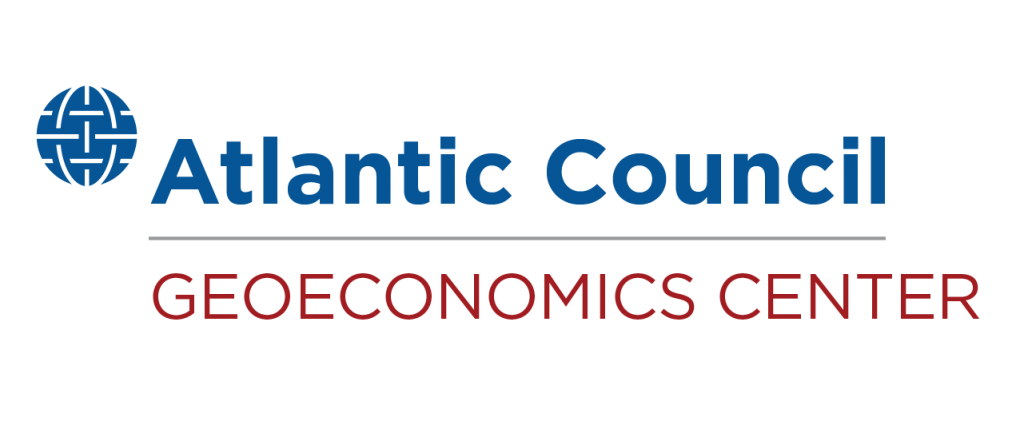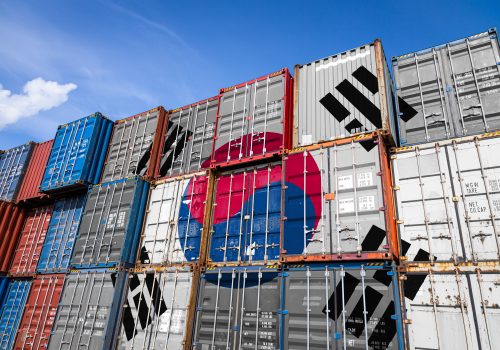[ad_1]
October 20, 2023 • 11:30 am ET
Breaking down China and India’s race to signify the Global South
China and India have taken very totally different approaches to advertise creating nations’ calls for for change within the worldwide financial and monetary system. And the divergences are solely rising in response to latest occasions starting from the simply concluded International Monetary Fund/World Bank annual conferences in Marrakech, the Belt and Road Forum in Beijing this week, and most tellingly their reactions to the horrific assaults by Hamas in Israel. China and India are successfully in a race to outline the consensus agenda for the Global South—and their selections could outline whether or not such a consensus may even exist.
The IMF/World Bank conferences in Marrakesh
One of the concrete outcomes of this 12 months’s IMF/WB annual conferences is the settlement for an “equi-proportional” IMF quota enhance with out altering the relative voting shares of members. India’s Finance Minister broke the news of the quota agreement, affirming her nation’s help for the US proposal as a right away and non permanent answer, pending persevering with negotiations about altering the relative voting energy.
By distinction, China has wanted both an increase and a realignment of quota to replicate the rising share of creating nations, particularly its personal, within the world financial system. China’s view appears to be extra in line with that of the G24 (comprised of main creating nations) which emphasised that an equi-proportional IMF quota enhance with out quota realignment will weaken the IMF by persevering with to undermine its legitimacy and effectiveness. India has taken a realistic method, agreeing to adjustments that are possible now and never insisting on measures that are out of attain because of geopolitical conflicts amongst main nations.
Also noteworthy was the distinction between the G20 Ministerial assembly assertion popping out of the conferences. Under India’s chairmanship, the G20’s assertion omitted condemnation of Russia’s battle in Ukraine, as had the New Delhi G20 Summit assertion. India’s skill to craft a consensus assertion but once more stands in distinction with the dearth of consensus within the International Monetary and Financial Committee (IMFC) beneath Spain’s chairmanship. IMFC did not challenge a joint assertion popping out of the conferences; as a substitute the Spanish chair issued a person assertion containing a powerful condemnation of Russia. This distinction once more highlights India’s skill to forge a worldwide consensus over thorny points.
The third Belt and Road discussion board
Since its inception in 2013, China’s Belt and Road Initiative (BRI) has concluded deals worth about $1 trillion in 150 countries. About 130 of these nations have despatched delegations to this week’s Forum, together with about twenty heads of state—of nations like Russia, Hungary, Indonesia, Sri Lanka, Argentina, Kenya and Zambia. India is conspicuous by its absence. The gathering is meant to showcase President Xi Jingping’s main function in world growth efforts—in distinction to his absence on the G20 Summit in New Delhi the place Prime Minister Narendra Modi took the limelight.
Amidst criticisms about inefficiency in mission implementations and large debt buildups, China is utilizing the Forum to affirm that the BRI will proceed, albeit in smaller and greener forms specializing in digital infrastructure, as a substitute of large-scale bodily initiatives. The pursuits proven by many creating nations counsel that participation within the BRI will stay an necessary consideration of their dealings with China—particularly if the United States and its allies don’t present their very own various financing. By distinction, India has criticized the BRI for selling initiatives which have failed to fulfill worldwide high quality and transparency requirements, and specifically has been in opposition to the China-Pakistan Economic Corridor, one of many BRI flagship initiatives, which has raised India’s sovereignty considerations because it passes by way of disputed Kashmir.
Reactions to the Israel/Gaza state of affairs
Perhaps probably the most dramatic distinction between China and India in response to latest occasions has been their reactions to unfolding occasions within the Middle East.
Immediately after Hamas assaults on Israel, PM Modi expressed shock over the terrorist assaults, saying “we stand in solidarity with Israel at this difficult hour.” The Indian authorities then reiterated its long-standing help for an impartial Palestinian state. India’s stance is nearer to that of the West.
By distinction, China has avoided condemning Hamas however known as for all events to push for a ceasefire, an finish to the preventing, and returning to the negotiating desk. However, in more moderen days, China has criticized Israel’s actions as “acting beyond the scope of self-defense and should stop its collective punishment of Gaza civilians.”
China’s evolving view on the Israel/Gaza state of affairs appears to be in line with that of many developing countries, together with main ones reminiscent of Brazil, South Africa, and Indonesia in addition to the African Union. That view attributes Israel’s denial of the elemental rights of the Palestinian folks as the foundation trigger of the present tensions and requires negotiations to resolve the conflicts.
Is there a consensus agenda of the Global South?
Recent occasions have revealed main variations in coverage and posture, not solely between China and India, however amongst creating nations. Those variations counsel that it isn’t simple to explain a grand widespread view of the varied nations within the Global South. Nor is such a consensus across the nook. It is extra doubtless that totally different configurations of nations will coalesce round totally different points, relying on their circumstances and nationwide pursuits.
Developing nations will doubtless decide and select their alignment with China and India based mostly on their particular objectives. For instance, creating nations wanting to develop their commerce and funding alternatives will proceed to method China—whose world financial footprint is way bigger than that of India. Furthermore, nations with a powerful anti-colonial inclination will discover extra affinity with China.
On the opposite hand, when nations prioritize the significance of having the ability to negotiate with developed nations to alter present worldwide financial and monetary establishments and practices to be extra supportive of their very own financial development and growth, India’s pragmatic method has develop into extra engaging—as demonstrated by the help of main nations for India’s presidency of the G20 in 2023.
The consequence will likely be a posh net of multi-alignment, as a substitute of easy non-alignment, amongst nations within the Global South. This will make it difficult for the West to win hearts and minds of creating nations in its geopolitical competitors with China. It additionally highlights the significance for the West to have interaction constructively with nations like India to deal with the grievances and considerations of creating nations. Finally, it may constrain the diplomatic clout of each India and China, as neither will really be capable to say it represents the entire vary of views of the Global South with out a single general consensus.
Hung Tran is a nonresident senior fellow on the Atlantic Council’s GeoEconomics Center, a former govt managing director on the Institute of International Finance and former deputy director on the International Monetary Fund.

At the intersection of economics, finance, and international coverage, the GeoEconomics Center is a translation hub with the purpose of serving to form a greater world financial future.
Further studying
Mon, Jul 31, 2023
China isn’t the only Asian country expanding its trade with Africa
Econographics
By
When it involves Asia-Africa commerce, many consider China first. But Beijing is just not the one nation rising ties. South Korea has accelerated commerce, funding, and growth initiatives—increasing buying and selling volumes considerably.
Image: Indian parliment in New Delhi by night time.
[adinserter block=”4″]
[ad_2]
Source link
